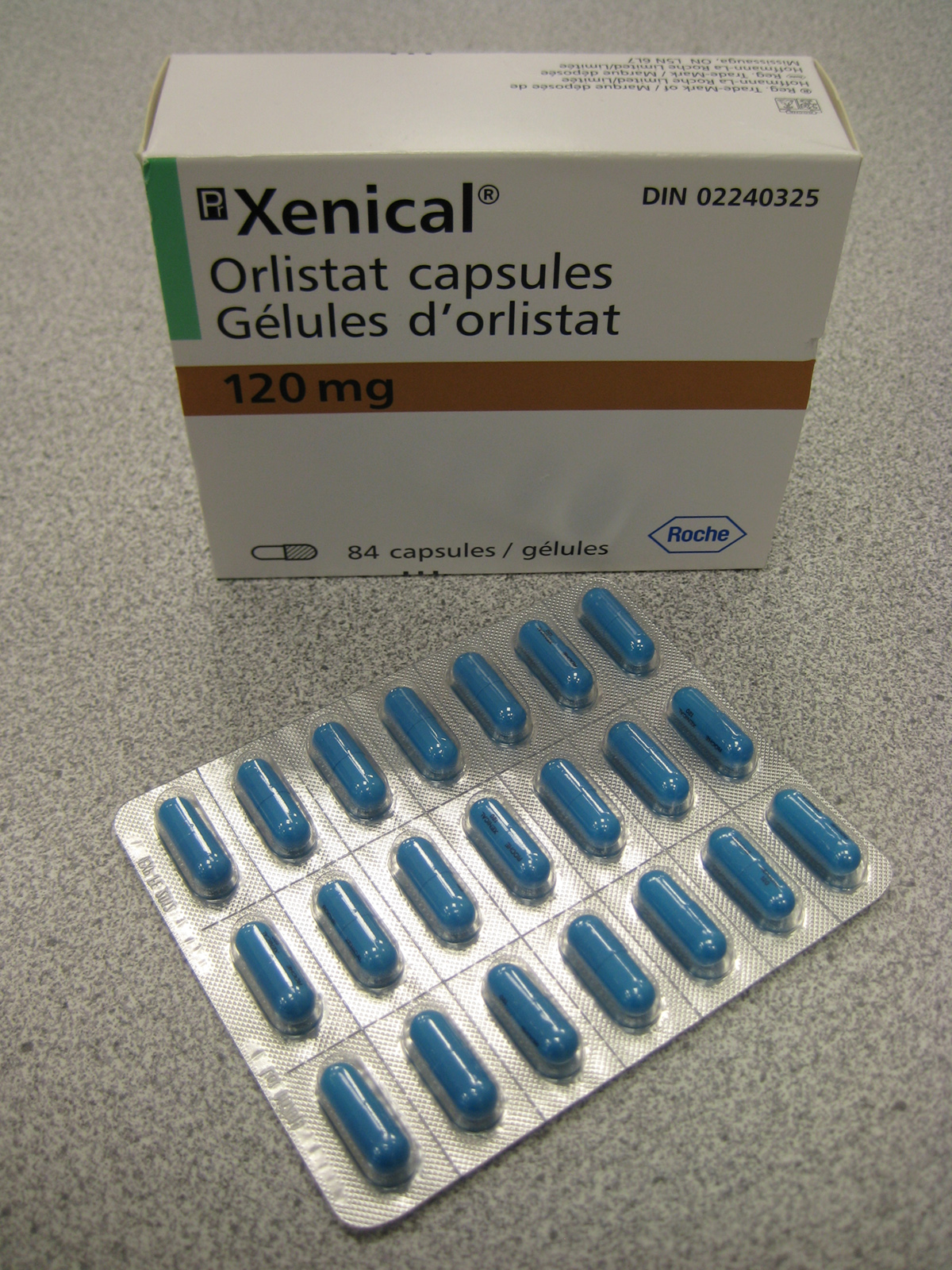
Orlistat use
Orlistat (Xenical, Alli, tetrahydrolipstatin) is a medication used in obesity treatment along with the diet and exercising, especially in diabetics, hypertension,high cholesterol and lipids patients.
Adverse effects of orlistat
The medication is not absorbed from the intestines and therefore has rare side effects. Mostly patients complain about gastrointestinal problems. The most common side effects are fatty and oily stools, increased and frequent defecation, fecal incontinence, gases, oily spotting. Some patients treated with orlistat have experienced discomfort, nausea, vomiting, constipation, cholelithiasis and abdominal and rectal pains. Tooth and gum problems were also recorded.
Allergic reactions to orlistat are rare, and reported cases includes rash, pruritus, urticaria, angiedema, and more serious bronchospasm and anaphylactic reaction. There was also a case of cutaneous leukocytoclasticvasculitis.
Orlistat might cause influenza, respiratory infections and ear, nose and throat symptoms. This drug rarely affects the skin, causing dry skin or rash, rarely some other skin infection. Some of the patients have muscsle problems. They have experienced joint and muscle pains, back pain, pain in legs and tendonitis.
Patients treated with this medication might expect headache, dizziness, tiredness, sleeping problems, and sometimes even serious psychiatric problems, like anxiety or depression. Women using orlistat may have menstrual problems or vaginitis and both sexes are reported to have urinary infections. Hypertension and edema are possible cardiovascular complications of orlistat.
Patients on blood thinners (anticoagulant therapy) might experience decrease prothrombin, increased INR (International Normalized Ratio, for checking the effectiveness of anticoagulants) and problems with hemostaticparameters.
Diabetic patients using orlistat could suffer of hypoglycemia, polyuria, polydipsia and ketoacidosis. This medication is not connected to the hepatitis, but it does increase levels of liver enzymes sometimes cause jaundice, weakness and abdominal pain. Orlistat may rarely cause damage to your kidneys, precipitating calcium oxalate.
Be aware
Your doctor should be informed about all the medications you have been taking, any prescribed medication, OTC (over the counter) or herbal have to be reported. Problems with thyroid gland, pancreas or liver diseases, diabetes and history of gallstones must also be reported to the doctor.
Xenical should not be used if you are allergic to orlistat, have malabsorption syndrome or gallbladder issues. The medication is to be used only if doctors prescribes it and you shouldn’t give your tablets to someone else. Xenical (prescripted orlistat) is meant to patients older than 12, only by a doctors’ order, and OTC orlistat (Alli) should not be used in children before18.
High fat diet, while taking orlistat, may increase the possibility of unpleasant gastrointestinal side effects.

















Your thoughts on this
Loading...